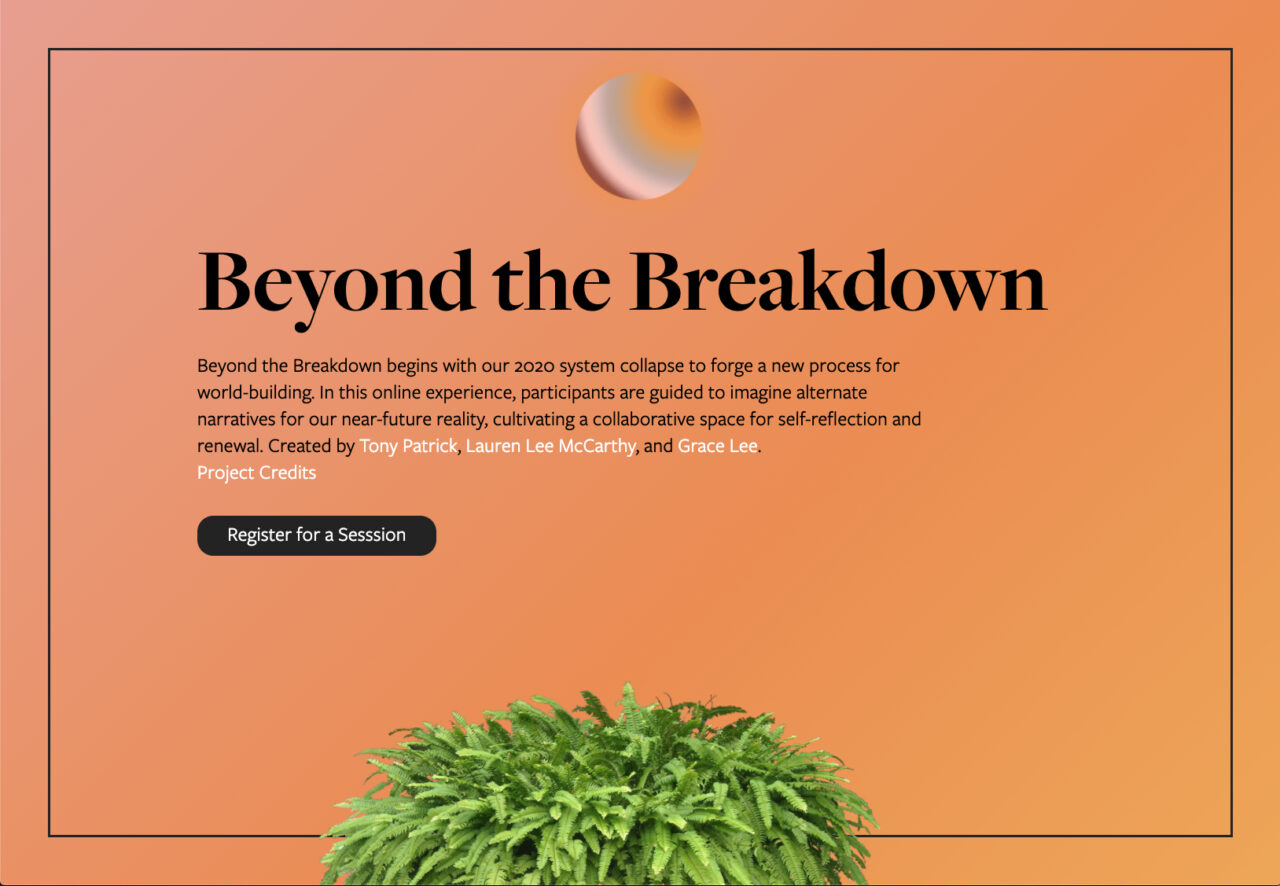Lauren Lee McCarthy
Lauren Lee McCarthy (She/they) is an artist examining social relationships in the midst of surveillance, automation, and algorithmic living. She has received grants and residencies from Creative Capital, United States Artists, LACMA, Sundance New Frontier, Eyebeam, Pioneer Works, Autodesk, and Ars Electronica. Her work SOMEONE was awarded the Ars Electronica Golden Nica and the Japan Media Arts Social Impact Award, and her work LAUREN was awarded the IDFA DocLab Award for Immersive Non-Fiction. Lauren’s work has been exhibited internationally, at places such as the Barbican Centre, Fotomuseum Winterthur, Haus der elektronischen Künste, SIGGRAPH, Onassis Cultural Center, IDFA DocLab, Science Gallery Dublin, Seoul Museum of Art, and the Japan Media Arts Festival.
McCarthy is also the creator of p5.js, an open-source art and education platform that prioritizes access and diversity in learning to code, with over 10 million users. She expanded on this work in her role from 2015–21 on the Board of Directors for the Processing Foundation, whose mission is to serve those who have historically not had access to the fields of technology, code, and art in learning software and visual literacy. Lauren is a Professor at UCLA Design Media Arts. She holds an MFA from UCLA and a BS Computer Science and BS Art and Design from MIT.
Tony Patrick
Tony Patrick (He/him) is a worldbuilder, social practice artist, comics creator, and immersive director.
Patrick is a Sundance Institute World-building Fellow, 2021 Sundance Film Festival New Frontier Artist, IFP/RYOT 5G Storytelling Alum, Guild of Future Architects Founding Member, NYU ITP & IMA Professor, NYU Future Imagination Collaboratory Fellow, NYU Red Burns Fellow, CommonField Fellow, NEW INC alum, For Freedoms Artist, Wide Awakes Founding Member, Buckminster Fuller Institute Design Science Studio Advisor/Mentor, RLAB Mentor, Today@Apple NYC Youth Program Mentor, Futurist Writers Room Co-Designer, and Restoring the Future Co-Designer. Patrick attended the Dramatic Writing Program at New York University.
As an author/director of numerous screenplays, short films, and documentaries (HBO, Cinemax, and the CBC) in conjunction with a series of published comics under his belt (Batman & The Signal, X’ed), Tony’s penchant for creating fictional and immersive worlds catapulted him into numerous future-facing residencies and served as the inspiration for sculpting co-creation spaces which produce new artworks, prototypes, frameworks, and civic solutions in his Community-World-building initiative (the ReWriters Room) with artists, entrepreneurs, institutions, and communities-at-large.
When he’s not advocating for underrepresented students to embark on game design/tech careers through his Tenfold Gaming Initiative (TGI), he’s building his latest venture, the School of Lived Experience, a renewal center framework comprised of somatic community-centric programs, interactive public art experiences, co-creation hubs, and virtual engagement platforms which provide ongoing opportunities for local communities, students, and artists to interact, heal, & build together.
Grace Lee
Grace Lee (She/her) is an independent filmmaker who most recently produced and directed two episodes of the Peabody Award-winning Asian Americans series as well as And She Could Be next, POV’S first broadcast series about women of color transforming politics and civic engagement, which was nominated for an NAACP Image Award. Other credits include the Peabody-winning American Revolutionary: The Evolution of Grace Lee Boggs, The Grace Lee Project, Makers: Women In Politics, Off the Menu: Asian America, and K-Town ’92: Reporters, an interactive online project about the 1992 Los Angeles civil unrest.
Other credits include the Emmy-nominated Makers: Women in Politics and Off the Menu: Asian America, both for PBS; Janeane From Des Moines (2012), set during the 2012 presidential campaign, which premiered at the 2012 Toronto Film Festival as well as American Zombie (2008), a personal horror film, which premiered at Slamdance and SXSW.
Lee is co-founder of the Asian American Documentary Network (A-Doc), a Directors Guild of America member as well as a member of the Academy of Motion Picture Arts and Sciences. She is also the host and executive producer of a podcast investigating systemic inequities at PBS called Viewers Like Us.
